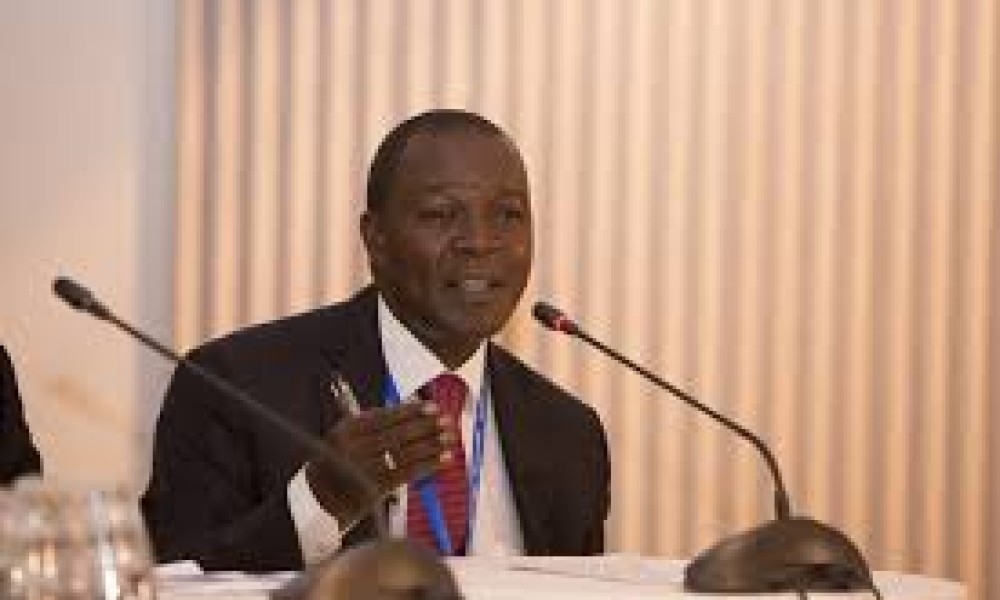A United Arab Emirates (UAE)-based firm will take up a majority stake in Telkom Kenya from London’s Helios Investment Partners, marking the latest twist in the deal room of the loss-making telco.
The Treasury said on Wednesday it had settled on Infrastructure Corporation of Africa LLC (ICA) of the UAE to be the new majority shareholder in Telkom Kenya following a competitive process that started in January 2023.
This came hours after the Cabinet rescinded the decision in July last year that saw Helios pay Sh6.09 billion to exit the telco, directing the London-based private equity fund to refund the government the amount.
The Treasury withdrew Sh6.09 billion on August 5, 2022 and paid Jamhuri Holdings Ltd, a Mauritius-based subsidiary of Helios, in a transaction that did not get parliamentary approval.
The latest development means Helios will have to refund the Kenyan government Sh6.09 billion and then directly sell its 60 percent stake to the UAE firm, allowing the government to avoid the technicalities of selling Telkom as a parastatal.
“Government of Kenya (GoK) will work with Jamhuri/Helios to transfer their 60 percent shareholding directly to ICA. This process will inevitably require rescinding of the transaction documents already signed between GoK and Jamhuri/Helios, among other necessary actions,” said Njuguna Ndung’u, the Treasury Cabinet Secretary.
The Treasury said the UAE firm will inject capital into Telkom to fund critical infrastructure and the overall upgrade of the company’s capabilities and also settle some of the outstanding liabilities.
The government will also inject funds into the telco as part of its obligations as a minority shareholder and a key consumer of services offered by the company. Further, it has promised to roll out yet-to-be-disclosed reforms in the telecommunications sector.
“GoK as a critical stakeholder will pursue the actualisation of regulatory reforms that are necessary to correct the structural imbalance in the telecommunications industry for the benefit of all stakeholders, key of whom is the public as a consumer,” said the Treasury.
The disclosures by the Treasury eased concerns over the structure in which Helios would have refunded the cash without resuming its position as Telkom Kenya’s majority shareholder just a year after exiting due to dissatisfaction with some State actions related to Telkom.
These include the refusal by the government to approve a proposed joint venture between Telkom Kenya and Airtel Kenya, which they deemed necessary to help them better compete with industry leader Safaricom.
Helios was also frustrated by the government’s decision to expropriate Telkom’s 79-acre prime property on Nairobi’s Ngong Road, valued in excess of Sh10 billion, for the construction of a sports ground.
The nature of last year’s exit deal also meant that a refund of the Sh6.1 billion to the government would require negotiations between the two parties and the identification of a third-party buyer of the shares.
The structure of the deal saw the government pay the PE fund a peppercorn amount of $1 (Sh148.45 at today’s rate) as consideration for the deal, while another $51 million (Sh7.57 billion at today’s rate) was reimbursement of shareholder loans that the fund had provided Telkom Kenya.
A letter written by then-Treasury Principal Secretary Julius Muia to the Controller of Budget, urging a release of funds for the unbudgeted expenditure before the deal’s deadline date of July 29, described the $51 million as “total consideration” for the deal.
The cash was to be raised via the issuance of a three-year Treasury bond, although it was not stated whether the government intended to transfer the holding of the bond directly to Helios or pay it in cash using the proceeds of the paper.
The UK-based fund also forwent $239 million (Sh35.48 billion at today’s rate) it inherited from Orange in 2016 when it bought a 70 percent stake from the French telecoms operator.
The Treasury further said that its decision to buy back the stake was partly driven by a National Security Council (NSC) approval for the deal on grounds of risk to national security.
Telkom Kenya provides critical government communications services to the Office of the President, the State House, the government data centre, the Ministry of Interior, the General Service Unit, the Department of Defence’s restricted communications networks and other critical State functions.





